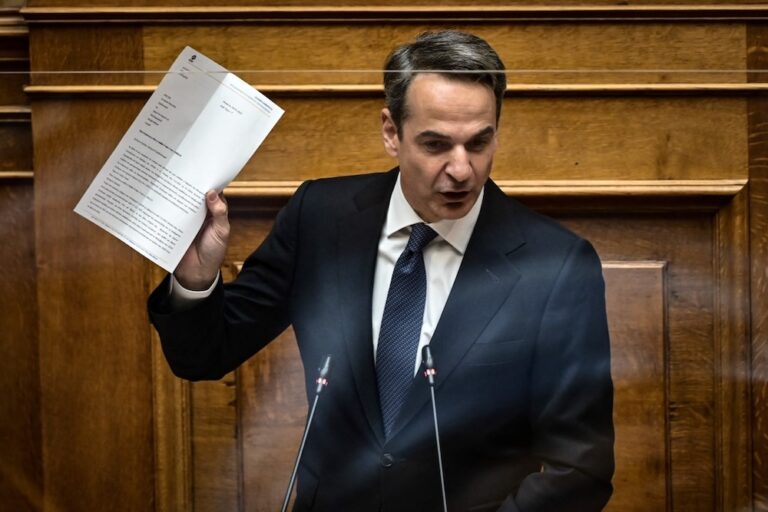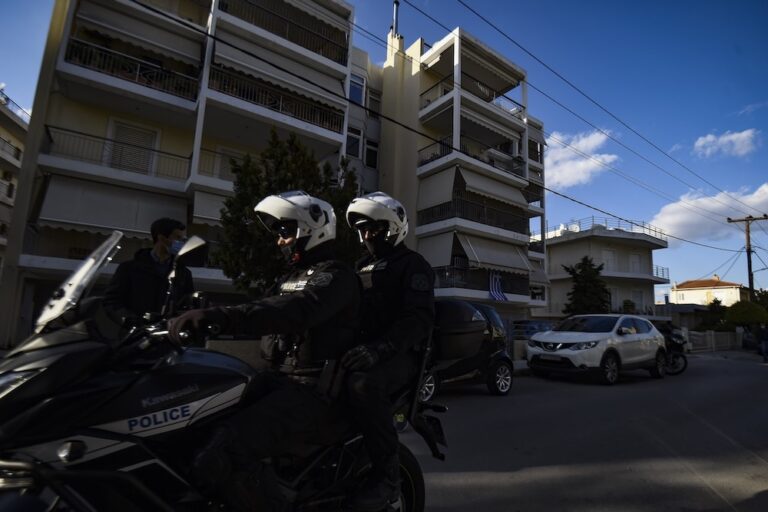(GHM/IFEX) – According to GHM, a report from the Reuters news agency has confirmed that a Greek court has slapped a temporary injunction on sales of a dictionary in the latest round of a dispute over an allegedly insulting definition contained in the book. On 26 May 1998, court officials in Thessaloniki (in northern Greece) […]
(GHM/IFEX) – According to GHM, a report from the Reuters news agency has
confirmed that a Greek court has slapped a temporary injunction on sales of
a dictionary in the latest round of a dispute over an allegedly insulting
definition contained in the book. On 26 May 1998, court officials in
Thessaloniki (in northern Greece) confirmed the decision, made in response
to complaints by a local conservative politician over one of the
dictionary’s definitions for “Bulgarians.”‘
The dictionary states that “Bulgarians” is used in Greek slang as a
pejorative term for supporters or players of sports teams in Thessaloniki,
which is near the Bulgarian border.
Fans of soccer and basketball teams from Athens and the rest of the south
often taunt northern fans and players, especially from the PAOK team, with
the term.
The inclusion of the definition triggered outrage in northern Greece and
public criticism from ministers who said it had been a mistake to put it in.
Dictionaries of modern Greek are rare, and the author, George Babiniotis,
did not conceal his anger. “People in positions of responsibility should
know better. Are we supposed to leave out all the words we do not like? This
is a type of censorship which we have not seen for many years”, he told
Flash radio. Babiniotis said he had agreed that any new editions of the
dictionary would list the definition in a special entry for sports slang.
A court hearing on the injunction is scheduled for 28 May 1998, but the
temporary ban on sales is practically meaningless as the first print run has
almost sold out already.
In a separate case, on 18 June 1998, Eva Androutsopoulos will go on trial in
Komotini (in northeastern Greece) for the violation of article 4 of the
(Metaxas regimeâs) Obligatory Law 1363/1938. She is charged with
proselytism, which allegedly occurred when she was teaching German in a
private tutorial school. She is charged as follows: “in the month of May
1995 and on a date that was not ascertained, she proselytized by abusing of
the inexperience of others (…) attempting in an indirect way, that is by
making frequent references during class time to Buddhism and to religious
beliefs of the Orient, to introduce pupils to the religious conscience of
believers in different dogmas (“heterodox”), aiming at changing the content
of their religious conscience.” GHM notes that Androutsopoulos is not a
Buddhist.
The prosecution was triggered by a report to the public prosecutor by the
Bishop of Komotini. This is the first trial on proselytism in Greece after
the countryâs conviction by the European Court of Human Rights on the
Kokkinakis affair in 1993, although
a new conviction of Greece is expected in connection with an older
proselytism case involving Greek Protestants.
Recommended Action
Send appeals to authorities:
Rights, Article 19 of which guarantees the right to freedom of expression,
including the right to seek, receive and impart information and ideas of all
kinds
Appeals To
Mr. Costas Simitis
Prime Minister of Greece
Maximou Megaron
Athens
Fax: +30-1-6716183
Please copy appeals to the source if possible.


